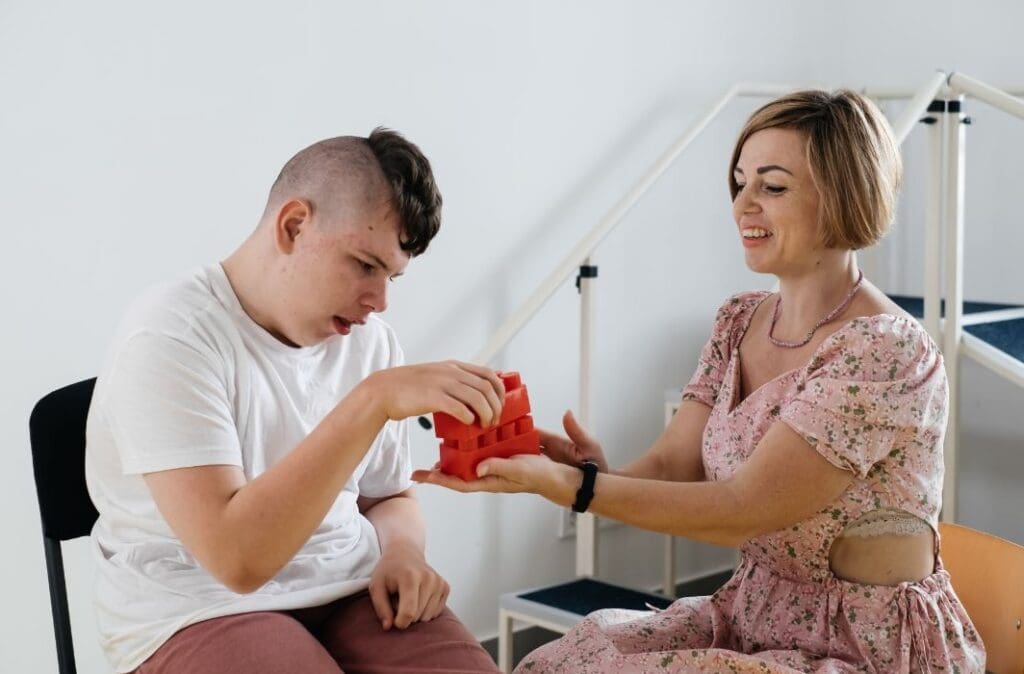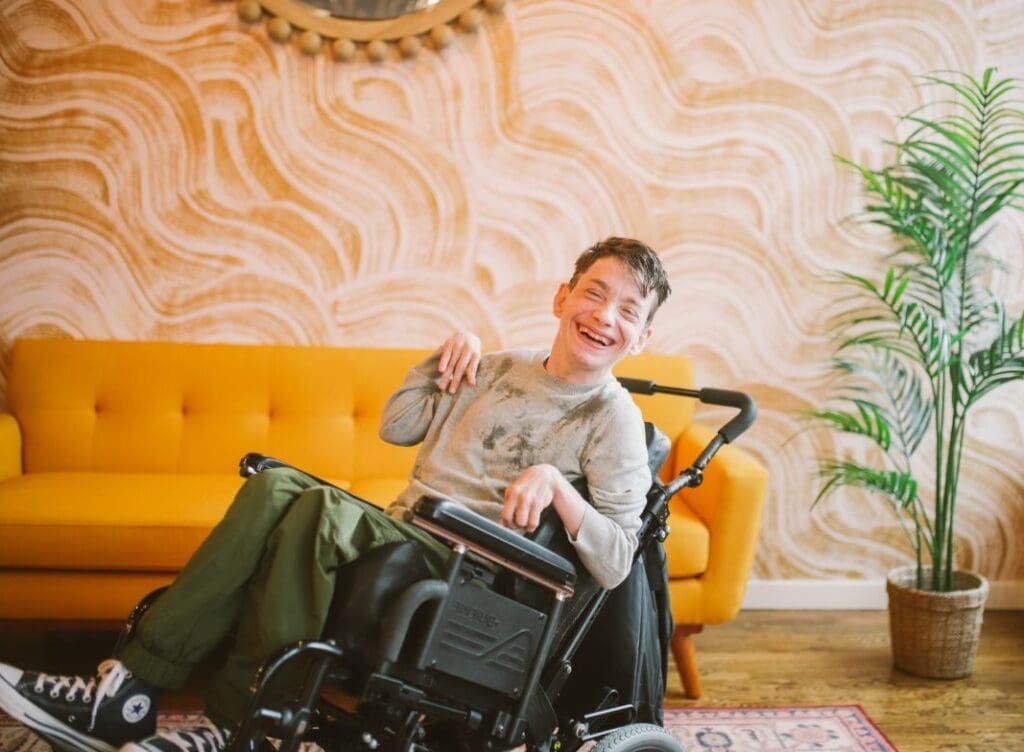Live-in care presents an opportunity for young adults with cerebral palsy, offering a blend of support and autonomy that is essential for their growth and independence.
This unique care model allows for a personalised approach, adapting to the individual needs and aspirations of each person.
By focusing on capability rather than disability, live-in carers play a pivotal role in empowering those with cerebral palsy in adults to navigate their daily lives with confidence and self-reliance.
We’ll explore how utilising live-in care can foster independence, enhance quality of life, and support the achievement of personal goals for young adults with cerebral palsy.
Join us as we explore the significant impact that bespoke, compassionate care can have on facilitating independence and promoting a fulfilling life.
Teach Adaptive Techniques

Completing daily tasks can be a challenge for young adults with cerebral palsy, but with the right tools and support, achieving independence is entirely possible.
Specialised tools and devices, such as adapted utensils, have been designed to assist with everyday activities, making tasks like eating more manageable.
Occupational therapy plays a crucial role in teaching practical strategies to overcome physical barriers, focusing on adapting the environment to fit the individual’s unique needs.
It’s about perseverance and creativity in finding solutions that work, ensuring activities for adults with cerebral palsy are accessible and achievable.
Encourage Mobility
For young adults living with cerebral palsy, mobility aids such as wheelchairs and walkers transcend their functional use; they embody the keys to unlocking a more independent lifestyle.
These indispensable tools, when used in conjunction with specifically designed physical therapy exercises, serve a dual purpose. They not only aid in fortifying muscle strength but also in refining motor coordination, thereby laying the foundational stones for enhanced personal autonomy.
Furthermore, the significance of creating accessible and inclusive community spaces is paramount. These environments foster a sense of belonging and interaction, effectively dismantling the obstacles posed by mobility challenges.
By promoting participation in a range of activities, these spaces play a critical role in supporting the quest for independence among young adults with cerebral palsy, making everyday life not just feasible but also more enriching.
Seek a Live-In Carer

For young adults managing the complexities of cerebral palsy, striving towards independence is an essential goal, embodying both freedom and personal achievement.
A live-in carer emerges as a pivotal figure in this journey, offering bespoke support with day-to-day tasks while nurturing a culture of self-reliance and confidence.
The continuous, reassuring presence of a dedicated carer through live-in care provides not only assistance but also deep emotional support, laying down a robust foundation of trust and mutual understanding.
Crucially, maintaining a delicate balance between care and independence is imperative, ensuring that the drive towards achieving cerebral palsy independence remains central within the carer-individual relationship.
This balanced approach fosters an environment where the individual feels supported yet free to explore their potential, making independence a tangible and achievable reality.
Life Skills Training
Developing essential life skills such as budgeting, cooking, and cleaning is crucial for young adults with cerebral palsy aiming for independence.
Early and continuous education in these areas lays the groundwork for self-sufficient living.
Furthermore, technology plays a transformative role in this journey, offering tools like time management apps and instructional videos that make learning these skills more accessible.
Support Independence in Meal Preparation
For young adults with cerebral palsy, mastering the art of cooking and meal preparation with the aid of adaptive kitchen tools and appliances can mark a significant step towards independence.
Nutritional education and planning also play vital roles in ensuring they can manage a healthy diet on their own.
Moreover, for those facing significant challenges, exploring meal delivery services and pre-prepared meal options provides a practical alternative.
Develop Self Skills Training
Self-advocacy is a crucial skill for young adults with cerebral palsy, enabling them to confidently handle services, rights, and accommodations tailored to their needs.
Developing social skills, managing relationships, and building a supportive network are equally important, fostering a sense of belonging and community.
Additionally, access to mental health support and resources specifically designed to address the unique challenges faced by individuals with cerebral palsy is essential.
Fostering independence for young adults with cerebral palsy involves a synergistic approach combining adaptive techniques, technology, and personalised support.
Tailoring these strategies to fit individual needs, preferences, and goals, while connecting with dedicated resources and communities, paves the way for a more autonomous and fulfilling life.
With personalised support that celebrates capability over disability, at IP Live-In Care, we’re committed to fostering autonomy, enhancing daily living, and achieving personal aspirations.
If you or a loved one are seeking support to face life with confidence and self-reliance, contact us today to find out how our compassionate, bespoke care packages can empower and make independence a reality.

